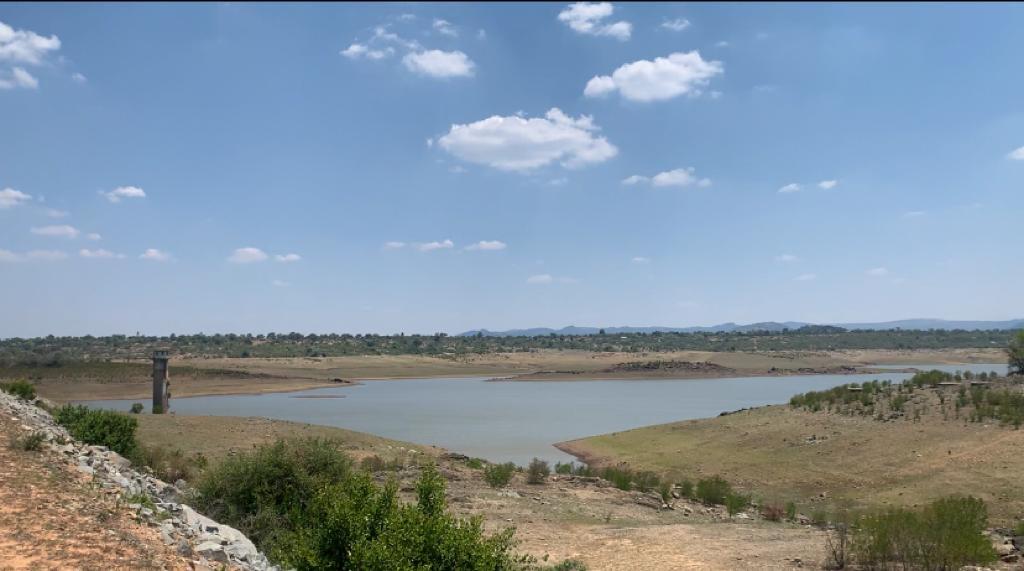Bulawayo City Council (BCC) is facing the grim possibility of decommissioning two of its supply dams if they do not receive significant water inflows during the current rainy season, a development that will worsen the current water woes faced by the residents.
The city is faced with perennial water shortages and is currently under a 72-hour water-shedding schedule.
The local authority on Friday had a tour with the councillors and members of the media, of the water supply dams, led by Engineer Dumani Gwetu.
Eng Gwetu explained that the water levels at the dams have drastically dropped and if the catchment area does not receive a substantive amount of rain, Umzingwane Dam will be decommissioned in December while Lower Ncema Dam will be decommissioned in April 2024.
“Umzingwane dam has a full capacity of about 45 million cubic meters. It is almost the same size as Upper Ncema Dam. The challenge we are facing is Umzingwane dam is at 4.13 percent, and we may have to decommission it in December if we don’t get adequate rain.
By then we would have reached the lowest possible abstraction level without affecting fish and other aquatic life found in the dam. if the rains then fall and the water level goes up, we can be able to recommission the dam. We are not going to abstract all of the water. According to the law, we must leave some water for the fish and other habitants,” Eng Gwetu said.
“We also have Lower Ncema dam which sits on the Ncema River. On the other side of the dam there is the Ncema treatment works, our second largest treatment plant. This dam is downstream of the Upper Ncema Dam. It is currently 31 percent, with a capacity of 18 million cubic meters at full capacity. If we do not get better rains we may decommission it on April 5, 2024.”
Engineer Gwetu said the challenge that they are currently facing at Umzingwane dam is that of inadequate pumps.
He said if the dam had adequate water and the council could pump enough, it would be able to supply the whole city no matter its size.
“The uniqueness of Umzingwane dam is that when gravitating, without any pumps, we get about 17mgl of water a day and when we connect pumps, we get at least 25mgl a day. The obstacle we have now is the transformer that we have,” he said.
“But if we can get a second booster, we can move from 25mgl to 35mgl per day. Ideally we would prefer to have at least three boosters so that we can be able to get 40 mgl per day. With that amount of water, we can be able to meet the demand no matter how the population grows.”
Engineer Gwetu also dismissed allegations that Umzingwane Dam is silted.
He said according to the plan of the dam, the silt has not reached any alarming levels that may call for action.
“We have often received inquiries from residents asking us why we are not scooping sand from our dams because they are silted. People need to understand that when we build structures in engineering, they have a specific design. When you look at our dam, the lowest penstocks has not yet been covered. It is still in plain sight,” he explained.
“The manner in which the dam was designed is that as long as the penstoke has not yet been covered and we can manage to abstract water then we are still good. Part of the siltation that is there is part of dead water that is found in the dam. However, that does not mean that as council we are not disturbed by the illegal mining activities that are happening around our supply dams. We are aware that there are illegal mining activities happening upstream but our council rangers try and minimise that. Of course siltation is occurring but it has not reached those alarming levels such that our lowest abstraction is now under silt.”

